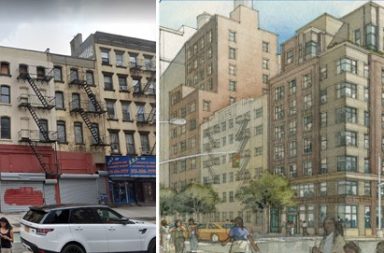The latest New York City Council proposal giving the real estate industry agita involves commercial rent “stabilization.”
“It’s terrifying,” exclaimed one prominent owner, who asked for anonymity. “It is New York City adopting an anti-business agenda that would create a sense of political risk and discourage investment.”
The new bill focuses on small retailers, office tenants and manufacturers. It is less complicated than a forced renewal scheme floated last fall but has its own quirks.
The new proposal would create a nine-member (the bill memo says “seven”) rent guidelines board like the one that sets rent increases for apartments. This board would set initial rents and then calculate yearly increases for retail and office tenants under 10,000 square feet; and for manufacturing tenants under 25,000 square feet.
“They are completely ignorant,” declared Joanne Podell, an executive vice chairman at Cushman & Wakefield who specializes in retail deals. “I don’t believe the people aren’t well meaning, but they have no experience in retail and how it works.”
Podell says it took her almost 30 years to talk about the industry “with knowledge.” “I am still careful when I quote a rent,” she said.
Cushman colleague Steven Soutendijk says there is a misconception that building owners benefit by keeping spaces vacant, but they don’t: “Landlords have to pay their mortgage and property taxes, and brokers don’t make money if retail spaces stay vacant.”
Among the numerous issues that experts consider when setting the rent for an individual store are its neighborhood, location — whether in-line or at a corner — the ceiling heights, columns and spacing, the co-tenancy, the layout, the place for deliveries, signage, flags, foot traffic, hours of operation, venting for restaurants, the ground floor space, the upper-level space, the lower-level space and subbasement space.
Phew! But that’s not all. Also important is if the lower levels are able to be used for sales or just storage; elevators and escalators used by the public; the size of the elevator, and if there’s a separate freight elevator; outdoor space, and if usable: if it’s OK to serve food or it’s just a garden or terrace; the frontage on the street; the height and width and finishes around the shop windows — even its lead content for visibility into the store — and the condition of the space and the work needed to open the doors.
The same could be said for offices and manufacturing facilities, as there are numerous issues that affect rent and are detailed in leases that can run for dozens of pages. And then the owner may also contribute funds toward a build-out and make other concessions.
“No two pieces of space are the same,” adds Michael Cohen, president of the tri-state region of Colliers International, who is both an owner and a broker.
Calling the commercial leasing market “a very efficient economic system,” Cohen says demand “creates an ebb and flow; sometimes favoring one party or the other. The market sorts out the value of these commodities.”
His colleague, Vice Chairman Brad Mendelson, a retail expert sums it up: “It’s a topic that has to be shut down as quickly as possible. They’re crazy.”
Thanks to the new state rent regulation law, the multifamily sales market has already slid to a halt for any building with mostly rent-regulated apartments. As BTB previously reported, this has caused the state and city to lose $3.8 million and $15.6 million respectively on transaction and recording fees and left brokers twiddling their thumbs.
It’s also sending some buildings into bankruptcy as rent rolls no longer support the mortgage, and lenders are now requiring more equity and less leverage.
There are still ongoing effects from earlier measures. A 2004 bill that required all commercial buildings over 100 feet to install sprinklers by July 1, 2019, is now resulting in violations — even on well-managed Midtown towers that have sprinklers, as sources said paperwork is stalled at the Department of Buildings.
Already, 1,088 violations were handed out — all on Sept. 3.
Just to make things more complicated, especially for co-ops, condos and rent regulated properties, a new proposal filed this week in the City Council will require residential buildings of 100 feet to install sprinklers.









